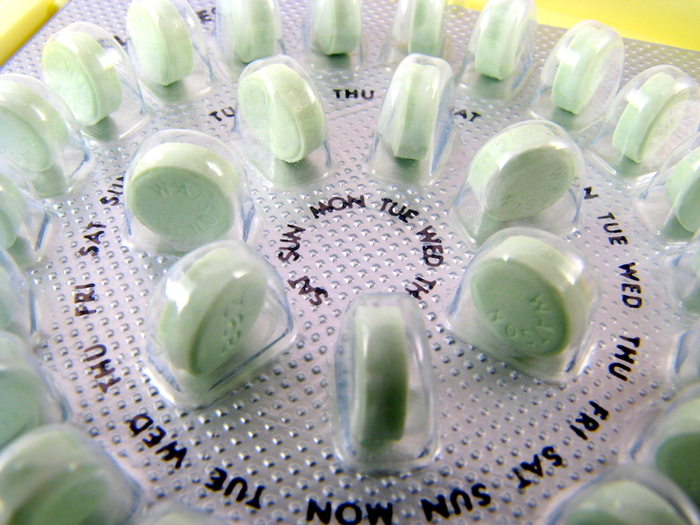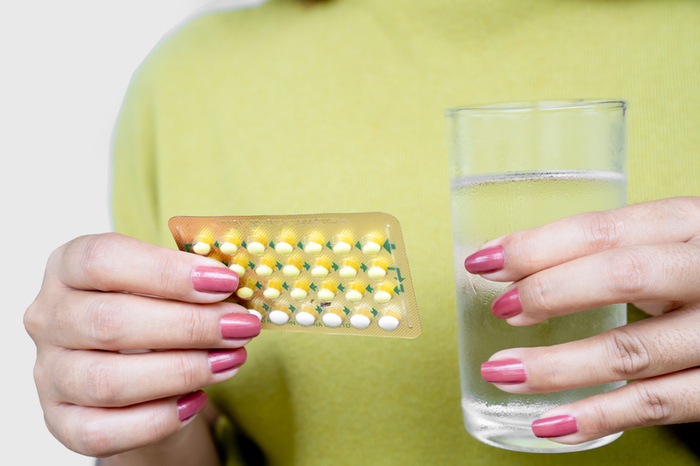- Calls to this hotline are currently being directed to Within Health, Fay or Eating Disorder Solutions
- Representatives are standing by 24/7 to help answer your questions
- All calls are confidential and HIPAA compliant
- There is no obligation or cost to call
- Eating Disorder Hope does not receive any commissions or fees dependent upon which provider you select
- Additional treatment providers are located on our directory or samhsa.gov
Can Birth Control Pills Help Restart the Menstruation Cycle in Eating Disorder Recovery?
The human body is a complex machine that can accomplish incredible feats. However, just like other machines, optimal performance is based off of how well the machine is maintained. For the body, this means properly fueling it with the necessities to human life—air, water, food, and rest.
Without sufficient amounts of each of these, the body cannot function at its best. Part of what makes the body so amazing is its adaptability and this adaptability is also seen in the body’s response to neglect through dehydration and malnourishment. The body will begin to shut down those processes that are not absolutely paramount to survival to conserve resources and energy for those that are, such as pumping blood from the heart to the rest of the body.
Individuals struggling with eating disorders will experience the impact of eating disorder behaviors in many bodily systems, a key one being the reproductive system.
The Effects of Eating Disorders on Your Menstrual Cycle
For those with female sex characteristics, eating disorder behaviors will have a clear impact on reproductive processes which often manifests through changes to the menstrual cycle.
When the body does not have adequate nourishment, the entire system is impacted. Many struggling with eating disorders, whether anorexia nervosa or not, will experience malnutrition. This does not necessary mean a lack of enough nourishment as much as a lack of appropriate intake of diverse nourishment that allows the body to perform. Inadequate nourishment can lead to loss of menstrual cycle, also referred to as amenorrhea.
Loss of Menstrual Cycle (Amenorrhea)
Amenorrhea is often classified as primary or secondary. Primary amenorrhea defines “the absence of menarche by age 15 years in someone with otherwise normal growth and development” whereas secondary amenorrhea is “the absence of menses for three consecutive months in someone who has achieved menarche.” [1]
There are various mechanisms that can cause amenorrhea. As one 2022 study notes, “amenorrhea in patients with eating disorders is generally classified as functional hypothalamic amenorrhea, which is amenorrhea not attributed to another organic cause and is instead related to stress, inadequate caloric intake, or, in some cases, excessive exercise.” [1]
The article goes on to detail that “In functional hypothalamic amenorrhea, gonadotropin releasing hormone (GnRH) drive is reduced, leading to a reduction in lutenizing hormone (LH) pulses and follicular stimulating hormone (FSH) levels, which cause ovulatory dysfunction.” [1]
Leptin is a hormone impacted by this process as well and researchers believe leptin can also lead to menstrual changes due to eating disorders. “Lower levels of leptin are believed to be an adaptive response to an energy-deficient state, as leptin decreases appetite, so in a malnourished state leptin levels are lowered in order to prevent the body from being susceptible to its appetite suppressant effects.” [1]
Essentially, the impact of eating disorder behaviors on these hormones and systems causes disruption to the reproductive system. After all, the body cannot support the development of another human within it if the body cannot keep itself alive.
Research indicates that, typically, “losing 10-15% of normal body weight leads to amenorrhea.” [2] However, it is key to note that one does not need to have experienced weight loss to experience amenorrhea, as one study found that 20% of those with anorexia nervosa experienced amenorrhea before any weight loss was noted [1].

Bulimia and Birth Control Pills
While amenorrhea is most often associated with anorexia nervosa, it is present in other types of eating disorders. Bulimia nervosa involves the individual engaging in periods of binge eating followed by compensatory behaviors to rid the body of calories consumed during the binge. These compensatory behaviors can include self-induced vomiting, laxative and/or diuretic use, and/or excessive exercise.
When individuals purge their body of the calories they are consuming, the body does not have the opportunity to break these foods down and absorb the nutrients they offer. This leads to malnutrition as the body does not have the nutrients it requires to function.
This is also true for supplements and medications that one with bulimia nervosa might take. If an individual purges through self-induced vomiting shortly after taking their birth control, for example, the body will not have had the time to absorb the medication, causing it to be ineffective.
This can also impact amenorrhea because the body is engaging with additional hormones when the pill is consumed but the amount is not consistent given purging behaviors.
Birth Control and Anorexia Nervosa
The effectiveness of birth control is also affected with anorexia nervosa, an eating disorder characterized by severely restricting caloric intake.
The body requires fats in order to absorb vitamins and nutrients. Those with anorexia nervosa avoid proper nourishment in general and often specifically avoid consuming fats, making the absorption of any nutrients or medications they might consume less effective.
Many individuals with anorexia nervosa will avoid taking birth control pills as they fear that the medication will cause them to gain weight. While this is a potential side effect, one study emphasizes that it is not as common as most think and that it is not a certainty. The article notes that there is a lack of conclusive evidence demonstrating that hormonal contraception causes weight gain [2].
Birth Control Weight Gain & Binge Eating Development
As mentioned above, there is no firm evidence supporting the concept that birth control pills cause weight gain. Even so, they do impact the body’s hormones, and this can impact other behaviors.
Studies are finding that the impact of birth control on hormones can increase the occurrence of binge eating episodes. One study noted that “changes in ovarian hormones accounted for 24% of the variance in binge frequency.” [3] This study specified that binge eating episodes increased during specific phases of the menstrual cycle.
Many falsely associate the weight gain to the birth control itself while it is likely a result of increasing binge eating behaviors due to hormonal changes from the birth control.
Can Birth Control Pills Help With Recovery?
First, it is important to note that, while return of menses is often viewed as a sign of improved bodily functioning and healing in those with eating disorders, it is often not a development well-received by the individual themselves.
Returning menses indicates that the body is healing and renourishing, which often involves gaining weight. Individuals with an eating disorder might feel that they have “failed” their eating disorder or experience complicated feelings of loss related to their eating disorder when they realize that they are taking larger strides toward recovery.
Often, support persons and treatment team members will likely rejoice with the return of menses. While it is a positive sign, it is important to be sensitive to how complicated it may feel for the individual themselves.
Regarding how birth control could support returning menses and eating disorder recovery, there are conflicting beliefs on this.
The complex feelings described above might actually lead to an individual returning to behaviors and relapsing.
Additionally, research finds different types of birth control had varying impacts on the menstrual cycle so it is not as simple as taking birth control hormones and menses returning.
One study found that using combined hormonal contraceptives (CHC) can cause regular, hormone-induced withdrawal bleeding, giving false reassurance of menstrual cycle resumption [2].

Further, “progestogen-only contraception can cause or sustain amenorrhoea, potentially masking a return to regular menstrual function.” [2]
The article remarks the a copper intrauterine device (IUD) is one of the only birth control devices that might accurately support that the return of the menstrual cycle is a sign of renourishment as it is devoid of hormones [2].
Truthfully, the best way to support healing the reproductive processes is through renourishment. Each body is different and how each individual’s systems heal will have its own presentation and timeline.
The body knows how to heal itself and it will do so when properly nourished.
Resources
[1] Saldanha, N., Fisher, M. (2022). Menstrual disorders in adolescents and young adults with eating disorders. Current Problems in Pediatric Adolescent Healthcare. [2] Thwaites, A., Westwick, R., Warner, V., Cameron, S. (2021). Contraception for women with eating disorders. The Faculty of Sexual & Reproductive Healthcare of the Royal College of Obstetricians and Gynecologists.Author: Margot Rittenhouse, MS, NCC

